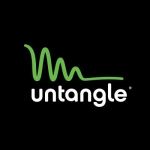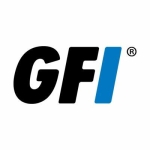What is our primary use case?
Some of our uses for this product are on-premise-based and then some are cloud-based. Mostly, we are cloud-based right now because we are getting away from physical architecture moving forward into the cloud as is Cisco. It allows going from considering CapEx (Capital Expenditure) to OpEx (Operating Expense, Operating Expenditure). That is one of the important things that it allows us to do. It is easier to have solutions cloud-based when it makes sense. All the updates and maintenance get taken care of on their side which is a benefit.
On the cloud, we have both public and private services. It depends on what we are doing. If we have a client that is a hospital, they have got to be HIPAA (Health Insurance Portability and Accountability Act) compliant. We also recommend private cloud services for some huge retailers that have to be PCI (Payment Card Industry) compliant.
We use it mostly just for prevention. Basically to prevent unauthorized use of network resources. They use it for routing capabilities, threat mitigation, worms, and viruses. A lot of times, it is used for the network application layer threat.
How has it helped my organization?
The solution does not do anything for us directly as we use it with other clients. We are a large IT company. We hear from clients who tell us what they want. We just find solutions for what they tell us they need. Everyone has a different flavor of what they are looking for and what they are looking to fix.
The Cisco IOS (Internetwork Operating System) firewalls are mostly set up for branch offices in small to medium business environments or for managed services. Those are the clients we usually use this solution for. It is usually only used for a specific thing to fill a specific need. It might be NAT (Network Address Translation), it might be a guideline or restrictions, it might be that they can have the option to make a solution work on cloud or on-premises. It could be deployed so they have the option to either use CapEx or OpEx. It helps to create options for those types of things.
What is most valuable?
I would say that the most valuable thing is probably the Application Visibility and Control which is how it controls the application traffic on the network. I like the IPS (Intrusion Prevention System), the IOS content filtering, and the NAT network translation. I like the way it completely integrates branch offices in our perimeter security.
What needs improvement?
A few things have room for improvement in your opinion. That would start with cost. Cisco products are more expensive than the competition, but the additional cost usually gets absorbed by the name recognition. Most people have Cisco or have familiarity with it, so they go with it. If they want the top quality product, they immediately feel comfortable with the Cisco name brand. That is where we come in as consultants. We bend over backward to make product comparisons and framing for solving the needs posed by an organization. I see something is a better fit for them that they could use. It would reduce their CapEx, their expenses, and it would fit them better all at the same time. The client may still want Cisco despite the recommendation that we make. But usually, that is what it is. Cisco fits, and if they want to spend the money, we make sure that it is within their budget. They feel more comfortable with Cisco, and they have had Cisco in the past, so we go with Cisco then.
Cisco is great. A lot of the tech companies are doing really well. But Cisco is still in the forefront. They are on top of this category of products. I can not think of anything else they could do because they cover pretty much everything that you would need a firewall for. Then you get Cisco's support behind the products.
I would think it would be a lot better for us and we could make more money if we try to recommend that clients put drop-in boxes at every location. But we do not choose to do that unless there is a purpose for it. In most cases, we would prefer clients to go the OpEx route. It takes a lot to offset the cost of Cisco so if they are going to do a cloud solution, their costs are metered per month by whatever solution they have. That is a lot better for projecting costs, and then there is the benefit of everything being upgraded in the cloud for them. They do not have to worry about anything. It just works.
For how long have I used the solution?
We have been using Cisco for as long as Cisco has been around. It is hard to answer the question of when, exactly, we started using this product because they have been upgrading or changing the product as it evolved over the years. It is basically the same foundation and they build upon that over time. I can just say that we have been either using this product or something very similar for a long time.
What do I think about the stability of the solution?
Cisco IOS Security is stable, very stable.
What do I think about the scalability of the solution?
The capabilities for scalability with this product are huge. It is very scalable.
A lot of our clients have a small main office with accounting and human resources that are headquarter-based. Most of them have other remote sites and branch offices. Whether it is a bank or a finance company, it is easy for employees in those particular roles to be able to pull applications down. It takes a lot of stuff off what would have to be handled by the network firewall. They do not have to worry about so many threats when they are bringing up applications to use and if there are compliance or regulating issues that they have to be aligned with. But that is the type of environment where this product can be used to scale effectively.
How are customer service and technical support?
Cisco's technical support is very good. There are a couple of competing products that I know do not have support that is as good. Palo Alto does not have particularly good technical support, for example, but most of the rest of them do. Even so, Cisco is head-and-shoulders above all of them.
For tech support, independent of the cost of the product, I would definitely give Cisco a ten-out-of-ten.
Which solution did I use previously and why did I switch?
We just had a client go with Cisco Meraki and we put a couple of those in. Then we had a Cisco Nexus installation and they topped that by integrating it with perimeter firewalls for their remote locations or branches.
We currently use really any brand of product in consideration for our consultations. There is not any particular brand we are married to, and we have used them all, pretty much. We do not use all the solutions ourselves. We get feedback from our clients and the companies we do work for. All the clients that we get give us pretty good feedback on the recommendations and the products that they end up using. Otherwise, they would be angry with us. What we recommend has to fit their particular niche and that is what we have to be good at identifying.
For instance, if a client comes to me and describes how their organization is set up, we react to that. If they say they are a finance company and they have accounting and finance concerns, there are some pain points that they are going to have solved. One of those is application-specific. Then you have to layer that with your regulatory concerns. HIPAA compliance is something I encounter with finance companies, banks, and medical facilities. Those types of companies do very well with CloudGenix because CloudGenix is application-specific. If you put their firewalls in place, those would be a good fit for that type of client. For everything else — manufacturing and all the others and things like that — Cisco would be number one. They outweigh the competition in terms of different companies that they fit niches for better because of the range and flexibility of the solutions.
If the client's needs are application-based, then we start looking at another way with another solution. But Cisco does great with being PCI and HIPAA compliant and all that, but if you only consider Cisco for every installation, that means you are pulling everything from one pool. You are not looking closely at the specifics.
How was the initial setup?
I think that the initial setup is very straightforward. Most of the firewalls are straightforward and not too complex. When you are setting up a network with something like Merakis, or if you are looking at working with CloudGenix, then that is where you start to get a separation of difficulty in installation and will notice that it becomes a little bit harder to set up.
What other advice do I have?
My advice to people and companies considering this solution is to just do the research. Do compatibility research to compare with the other solutions that are out there. Definitely make sure that the firewall you choose is designed for your network architecture, application-layer attacks, and virus and worm protection. If that coverage is what you are looking for and you have an analog phone system. You might not be ready to go to VoIP (Voice over Internet Protocol) yet because you do not want to lose the phones that you have got. Some people add to that base as they scale. We can use something called SIPs (Session Initiation Protocol), for connecting all those analog phones to the VoIP. That is a good indicator that a Cisco firewall will be a good solution for you because it protects the unified communication and guards the SIPs, endpoints, and call-control resources.
On a scale from one to ten (where one is the worst and ten is the best), I would rate this product overall as a ten, for sure, if you consider its advantages over the competition. If you add in pricing, I would have to lower that to a nine-out-of-ten. Price is the only place that I figure Cisco could do something. Or if they could offset the cost of their boxes using a cloud solution. We had a client do that. They had boxes, but they were trying to figure a better way to scale. I suggested to them that they just move the areas that they were scaling to the cloud. They did it with the new branches they have added, and now they are waiting to phase out their boxes. They will eventually move over to a complete cloud-based firewall solution.
Which deployment model are you using for this solution?
Public Cloud
Disclosure: My company has a business relationship with this vendor other than being a customer: Partner














